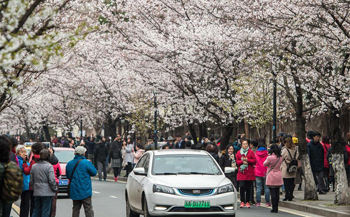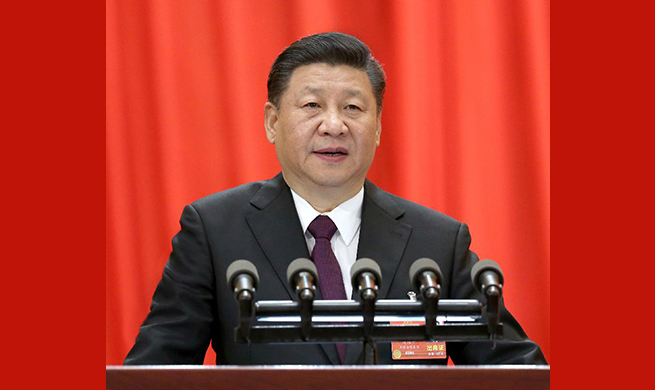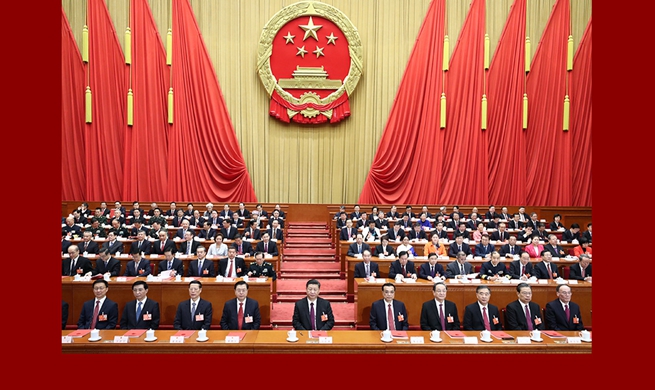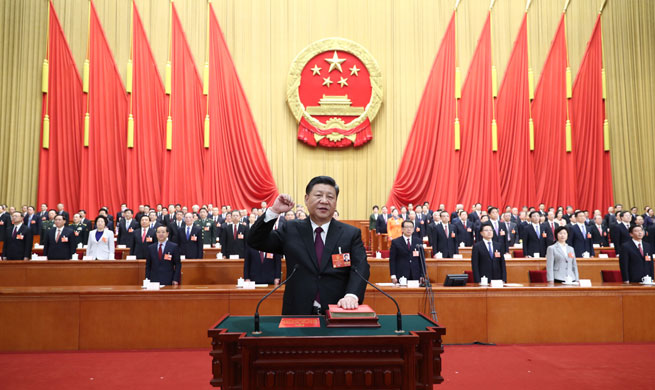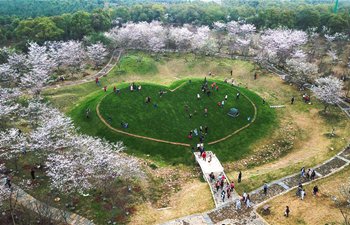BEIJING, March 22 (Xinhua) -- Chinese students are known for their excellent mathematics performance, and also for their huge homework workloads.
"The earliest birds waiting for the buses every day are not office workers, but middle school students. Even as a bystander, I feel they're suffering too much," said a bus driver in Lanzhou, capital of northwest China's Gansu Province.
For decades, efforts have been made by authorities at various levels to cut the workload for adolescents, but their bags continue to swell and they sleep less and less.
A study by China Youth and Children Research Center showed in the decade from 2005 to 2015 that 60 percent of primary and middle school students slept less than 9 hours a day, the minimal amount of sleep required according to the Ministry of Education.
Another report released by 21th Century Education Research Institute earlier this month indicated that the time Chinese elementary and middle school students spent on homework every day was three times that of the global average over the past three years.
A major source of pressure comes from extra-curricular classes. As early as 2012, a Program for International Students Assessment (PISA) test, an international survey aiming to evaluate education systems worldwide, found that Chinese students spent an average 13.8 hours on extra-curricular study every week, the most worldwide. The trend has continued under China's pressure-cooker schooling system and overbearing pressure from parents.
To free teenagers from endless homework, new policies on workload reduction are imminent. In February, the Ministry of Education jointly issued a notice with three other organs, vowing to rectify after school workloads. In the just-concluded annual two sessions - China's high-profile national political event - workload reduction was again a catchword as many called for reducing homework for young students.
Authorities in many regions have been pushing to turn the initiative into reality. A guideline published by the education department in east China's Zhejiang Province required later school start times for students in different grades and in different seasons.
Many junior high school principals in Hangzhou, Zhejiang's capital city, suggested that students should not complete their homework if they cannot finish it by 10 p.m. "We advise the students not to continue working after 10 p.m.. The parents can sign the paper and let the children hand it to the teacher," they said.
Neighboring Jiangsu Province also specified school arrival times for students at different levels. Primary students should arrive no earlier than 8 a.m., while students in junior and senior high schools should arrive after 7:40 a.m. and 7:20 a.m., respectively. In many places, school start times for primary schools were previously as early as 7 or 7:30 a.m.
In Ordos, north China's Inner Mongolia Autonomous Region, first and second grade classes in primary school are not given homework, and homework for other grades should take less than an hour to finish.
"The knowledge students learn every day does not need so much repetition as homework," said Zhang Xiujin, a retired principal in Shenyang, capital of northeast China's Liaoning Province.
The primary school Zhang headed banned homework in 1984, and its student performance and teaching quality have been among the best in that area over the past three decades.
"It's simple [to achieve that]. We just need to improve efficiency in class and increase interaction between teachers and students so that students can absorb knowledge better," said Yu Ying, the incumbent principal.
"We should teach our educators to instruct in a scientific manner and get rid of monotonous, inefficient teaching methods. This is the only way to reduce workloads," said Zhou Hongyu, professor at the Central China Normal University.





